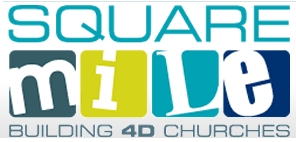 Biblefresh is an exciting new initiative that is just being launched around the UK to encourage Bible reading and engagement. Here’s some info about it from the EA/Slipstream website
Biblefresh is an exciting new initiative that is just being launched around the UK to encourage Bible reading and engagement. Here’s some info about it from the EA/Slipstream website
What is Biblefresh?
Biblefresh is a joint initiative which aims to encourage and inspire churches across the UK to make the most of the year 2011, empowering Christians to a deeper level of engagement with the Bible. The initiative brings together nearly a hundred agencies to raise the level of biblical literacy across the UK, through the following four tracks:
1. Bible reading
According to recent research only 1 in 7 Christians are likely to read the Bible outside of a church meeting. Making use of developments in digital technology and creative publishing, this track seeks to inspire Christians to read the Bible afresh, individually, in groups and as whole churches. Watch out for the Biblefresh handbook, packed full of creative suggestions and inspirational material arriving in May 2010.
2. Bible training
Our research tells us that only half of church leaders are confident in their Bible knowledge. Forty percent of Christians even feel undermined in their confidence in Scripture particularly after the recent militant atheism onslaught. Many Christianswho teach the Bible, such as Sunday school teachers and house-group leaders, have received no training in interpreting and applying the Bible. This Biblefresh track aims to equip Christians with improved Bible handling skills. Initiatives include:
– opportunities to learn at the major Christian festivals including: Keswick, Soul Survivor, Spring Harvest, CRE
– special courses and seminars at Bible colleges, churches and institutes around the UK
3. Bible translation
With over 200 million people without the Scriptures in their own language and 2393 language groups yet to have their own Bible, Biblefresh will be asking churches during 2011 to give financial support to a translation project facilitated jointly by Bible Society and Wycliffe Bible Translators, enabling more people worldwide to access the Bible. However we also recognise that the Bible is ‘foreign’ to many people in our own communities. This track also seeks to make the Bible more accessible to those outside the church.
4. Bible experiences
This track seeks to provide fresh experiences of the Bible to draw people back to reading and living it. Through the arts; particularly film, music and painting this track seeks to whet the appetite for biblical engagement. During 2011 the Biblefresh tour and resources will highlight some of the ways this can be achieved by local churches.
Download the Biblefresh Leaders Guide for more helpful information.
 This is the title of a Lent series put on in partnership between the Methodist Relief and Development Fund and the Evangelical Alliance.
This is the title of a Lent series put on in partnership between the Methodist Relief and Development Fund and the Evangelical Alliance.
 Jesus calls his followers to be salt and light in the world (Matt. 5:13-16). Salt and light make a difference. You would notice if they weren’t there. But,
Jesus calls his followers to be salt and light in the world (Matt. 5:13-16). Salt and light make a difference. You would notice if they weren’t there. But,